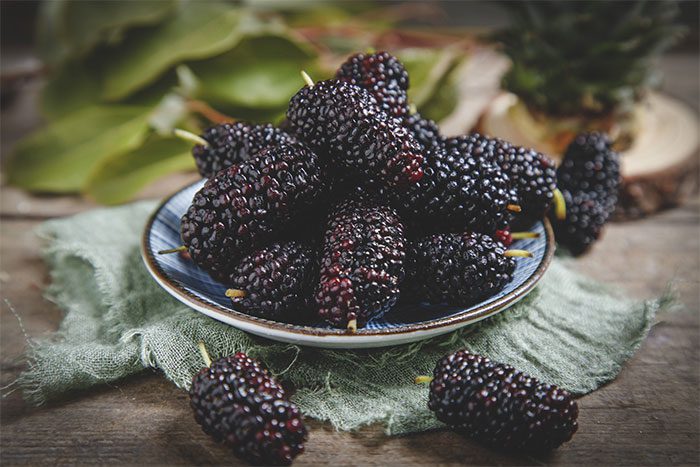Previously, this fruit was often overlooked, sold abundantly in markets at low prices. However, in recent years, it has gained popularity due to its remarkable health benefits.
Today, an increasing number of people are suffering from high blood sugar levels. Recent studies show that the diabetes rate in Vietnam is 7.3%. The prevalence of diabetes is rising rapidly, both in Vietnam and globally.
This increase exceeds the predictions of health organizations. This significant information regarding diabetes was shared by Professor and Doctor Tran Huu Dàng, President of the Vietnam Endocrinology and Diabetes Association, at the “11th Scientific Conference on Endocrine Diseases, Diabetes, and Metabolic Disorders in Vietnam, 2022.”
This expert noted that diabetes is a serious disease that damages multiple organs, severely affecting the health of patients. Moreover, from a socio-economic perspective, diabetes poses a burden due to the costly and complicated treatment and care involved.
Type 2 diabetes is a chronic condition that progresses silently. The expert emphasized that nutritional treatment plays a particularly vital role and should be implemented throughout the diabetes treatment process.

Consequences of diabetes. (Illustrative image).
Thus, controlling one’s daily diet is essential for everyone to ensure their health, whether they have diabetes or not. In fact, some foods around us are rich in natural insulin, and regular consumption can help us effectively manage blood sugar levels.
Fruit That Helps Control Blood Sugar
In the past, mulberries in Vietnam were wild fruits that were inexpensive and received little attention. However, in recent years, mulberries have become increasingly popular due to their wonderful benefits.
Small in size, but a mulberry contains countless nutrients. These include anthocyanins, resveratrol, polysaccharides, tannic acid, chlorogenic acid, active proteins, and more. They are also rich in vitamins, amino acids, and minerals such as calcium, potassium, phosphorus, iron, zinc, and selenium.
According to Traditional Medicine, mulberries have a sweet taste and neutral properties, making them a medicinal ingredient that can be used to create many dishes and remedies for kidney enhancement, vitality boosting, blood nourishment, preventing gray hair, aiding digestion, and supporting cardiovascular health.
Notably, despite their sweetness, for diabetics, mulberries are exceptionally beneficial. Mulberries contain an antioxidant called flavonoid. This substance has been shown to regulate fluctuations in blood sugar levels. Additionally, this fruit is packed with various vitamins, minerals, and fiber, which can effectively help control blood sugar levels in diabetic patients.

For diabetics, mulberries are an exceptionally beneficial fruit.
Several Traditional Medicine remedies also incorporate mulberries to support diabetes treatment. According to retired Colonel and general practitioner Bui Hong Minh (Vice President of the Ba Dinh Traditional Medicine Association, Hanoi), diabetic patients can take 30g of fresh mulberries, 20g of heavenly flower powder, and 15g of raw land, all placed in a pot, boiled with 500ml of water until only 150ml remains, and divided into 2 doses to be consumed in one day. Continuous use for 7 days will yield effective support for treatment.
However, when consuming mulberries, everyone should be aware of the following precautions:
While rare, mulberries can cause allergies, especially if they are damaged, spoiled, or treated with pesticides.
Due to the neutral property of mulberries, they should not be consumed in conjunction with foods such as bitter melon, tomatoes, or water chestnuts, as this could lead to stomach discomfort.
Individuals with weak spleens and stomachs or diarrhea should avoid eating mulberries.
Since mulberry juice contains tannins, it is advisable not to brew them in copper, iron, or aluminum pots, as this can break down the tannins and cause chemical reactions leading to poisoning. Mulberries should only be cooked in enamel pots, glass, or clay pots.
Other Foods Recommended for Diabetics
Bitter Melon
This vegetable is popular among many people and is known for its heat-clearing, detoxifying, and digestive-supporting properties. Notably, regularly consuming bitter melon can help lower blood sugar levels in the body. The glycoside in this food acts as a natural plant insulin, effectively stabilizing blood sugar levels.
Black Beans

Black beans help cleanse and lower blood sugar levels in the body.
Black beans are rich in anthocyanins, which can eliminate free radicals in the human body, effectively cleanses blood vessels, promotes blood circulation, and maintains a clean and reduced blood sugar level in the body.
Bitter Melon Tea
This tea has highly effective medicinal properties, capable of lowering cholesterol levels in the body while eliminating waste from blood vessels, helping to cleanse the vessels. The tea contains substances known as charantin, which stabilize blood pressure, and biologically active compounds like insulin that stabilize and control glucose levels in the blood. Additionally, wild bitter melon can reduce cholesterol levels, effectively lowering blood fats.
In addition to incorporating these foods into their diets, diabetics should also limit spicy foods, oily dishes, and high-sugar items. It is essential to maintain an appropriate level of physical activity to improve blood circulation and regulate bodily functions, leading to better health from within.


















































